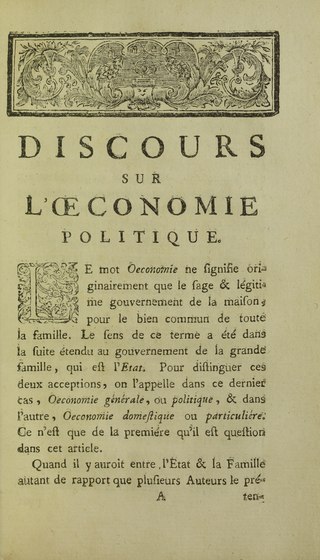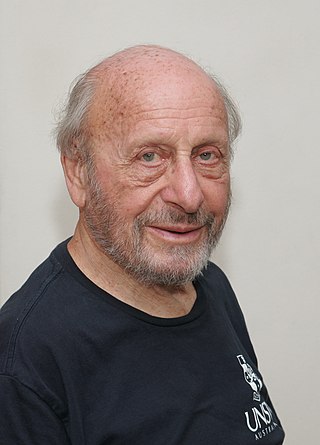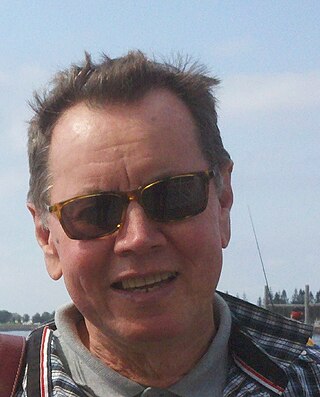Related Research Articles

Political economy is a branch of political science and economics studying economic systems and their governance by political systems. Widely studied phenomena within the discipline are systems such as labour markets and financial markets, as well as phenomena such as growth, distribution, inequality, and trade, and how these are shaped by institutions, laws, and government policy. Originating in the 16th century, it is the precursor to the modern discipline of economics. Political economy in its modern form is considered an interdisciplinary field, drawing on theory from both political science and modern economics.

Kenneth Joseph Arrow was an American economist, mathematician, writer, and political theorist. Along with John Hicks, he won the Nobel Memorial Prize in Economic Sciences in 1972.
In the social sciences, methodological individualism is a framework that describes social phenomena as a consequence of subjective personal motivations by individual actors. Class or group dynamics, which operate on systemic explanations, are deemed illusory, and, thus, rejected or de-prioritized. With its bottom-up micro-level approach, methodological individualism is often contrasted with methodological holism, a top-down macro-level approach, and methodological pluralism.

Fritz Machlup was an Austrian-American economist known for his work in information economics. He was President of the International Economic Association from 1971 to 1974. He was one of the first economists to examine knowledge as an economic resource, and is credited with popularising the concept of the information society.
The Royal Economic Society (RES) is a professional association that promotes the study of economic science in academia, government service, banking, industry, and public affairs. Originally established in 1890 as the British Economic Association, it was incorporated by royal charter on 2 December 1902. The Society is a charity registered with the U.K. Charity Commission under charity number 231508.
Eliot Roy Weintraub is an American mathematician, economist, and, since 1976, professor of economics at Duke University. He was born in 1943 in New York City.
The Economic Journal is a peer-reviewed academic journal of economics published on behalf of the Royal Economic Society by Oxford University Press. The journal was established in 1891 and publishes papers from all areas of economics.The editor-in-chief is Francesco Lippi.

Charles Albert Eric Goodhart, is a British economist. He worked at the Bank of England on its public policy from 1968–1985, and worked at the London School of Economics from 1966–1968 and 1986–2002. Charles Goodhart's work focuses on central bank governance practices and monetary frameworks. He also conducted academic research into foreign exchange markets. He is best known for formulating Goodhart's Law, which states: "When a measure becomes a target, it ceases to be a good measure."
Economic methodology is the study of methods, especially the scientific method, in relation to economics, including principles underlying economic reasoning. In contemporary English, 'methodology' may reference theoretical or systematic aspects of a method. Philosophy and economics also takes up methodology at the intersection of the two subjects.
David Ernest William Laidler is an English/Canadian economist who has been one of the foremost scholars of monetarism. He published major economics journal articles on the topic in the late 1960s and early 1970s. His book, The Demand for Money, was published in four editions from 1969 through 1993, initially setting forth the stability of the relationship between income and the demand for money and later taking into consideration the effects of legal, technological, and institutional changes on the demand for money. The book has been translated into French, Spanish, Italian, Japanese, and Chinese.
Warren Joseph Samuels was an American economist and historian of economic thought. He received a BBA from University of Miami, Miami, FL and obtained his Ph.D. from University of Wisconsin–Madison. After holding academic posts in the University of Missouri, Georgia State University, Atlanta, and University of Miami, he was appointed Professor of Economics in Michigan State University in 1968, where he stayed until his retirement in 1998.
Athanasios "Tom" Asimakopulos was a Canadian economist, who was the "William Dow Professor of Political Economy" in the Department of Economics, McGill University, Montreal, Quebec, Canada. His monograph, Keynes's General Theory and Accumulation, reviews important areas of Keynes's General Theory and the theories of accumulation of two of his most distinguished followers, Roy Harrod and Joan Robinson.

Geoffrey Colin Harcourt was an Australian academic economist and leading member of the post-Keynesian school. He studied at the University of Melbourne and then at King's College, Cambridge.

Murray Milgate, is an Australian-born academic economist and Sometime Fellow and director of studies in economics at Queens' College in the University of Cambridge, where he is now a Life Fellow. He is the co-creator and co-editor of the celebrated original edition of The New Palgrave Dictionary of Economics (1987) together with John Eatwell and Peter Newman.
Roger Edward Backhouse, is a British economist, economic historian and academic. Since 1996, he has been Professor of the History and Philosophy of Economics at the University of Birmingham.
Robert Wayne Clower was an American economist. He is credited with having largely created the field of stock-flow analysis in economics and with seminal works on the micro-foundations of monetary theory and macroeconomics.
David Alan Easley is an American economist. Easley is the Henry Scarborough Professor of Social Science and is a professor of information science at Cornell University.
William Breit (1933–2011) was an American economist, mystery novelist, and professional comedian. Breit was born in New Orleans. He received his undergraduate and master's degrees from the University of Texas and his Ph.D. from Michigan State University in 1961. He was an Assistant and associate professor of economics at Louisiana State University (1961–1965) On the recommendation of Milton Friedman he was interviewed and hired at the University of Virginia where he was Associate Professor and Professor of Economics (19651983). He returned to his San Antonio as the E.M. Stevens Distinguished Professor of Economics at Trinity University in 1983 and retired as the Vernon F. Taylor Distinguished Professor Emeritus in 2002. He is considered an expert in the history of economic thought and anti-trust economics. He established the Nobel Laureate Lecture Series at Trinity University and is most notable as a mystery novelist where their murder mysteries are solved by applying basic economic principles.
Shannon C. Stimson is an American political theorist and historian of ideas, whose more recent work and teaching spans the economic and political thought of the early modern period through the nineteenth century. She is the Thomas and Dorothy Leavey Chair in the Government department at Georgetown University. Her academic posts have included appointments at Harvard University (1984-1991), UC Berkeley (1991-2014), the Fulbright Professorship in the United Kingdom, the Christensen Fellowship of St. Catherine's College, Oxford, the John K. Castle Chair in Ethics, Politics and Economics at Yale University and she has been a Distinguished Academic Visitor at Queens' College, Cambridge on two occasions. Her research has been supported through fellowships from the Mellon Foundation, the National Endowment for the Humanities, the American Association of University Women, as well as by several prize fellowships. Her articles have appeared in numerous edited volumes, journals of political thought, economics, the history of economic thought, and political science in America and Europe. She has served on the editorial boards of the American Political Science Review, the Adam Smith Review, and the Journal of Politics.
References
- ↑ Vaughn, Karen I. (1979). "From the editor". History of Economics Society Bulletin. 1 (1). Cambridge University Press: 1–2. doi: 10.1017/S1042771600000028 .
- ↑ Goodwin, Craufurd D. (2008). "History of Economic Thought". In Durlauf, S.N.; Blume, L.E. (eds.). The New Palgrave Dictionary of Economics. London: Palgrave MacMillan. pp. 5886–5900. ISBN 978-1-349-58802-2.
- 1 2 Lodewijks, John (1999). "History of Economics: Societies and Journals". In O'Hara, Phillip Anthony (ed.). Encyclopedia of Political Economy: A-K. London and New York: Routledge. pp. 449–451. ISBN 0415187176.
- ↑ "Journal of the History of Economic Thought". Cambridge Core. Cambridge University Press. Retrieved January 22, 2019.
- ↑ O'Hara, Phillip (1999). Encyclopedia of Political Economy: A-K. Psychology Press. p. 449. ISBN 0415187176.